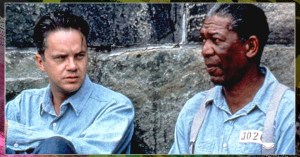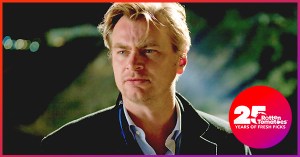10 Women Writers You Didn’t Know Were Also Film Critics
We take a look at a handful of prominent women writers who have taken a detour into the world of film criticism, from Gone Girl writer Gillian Flynn to legendary journalist and author Joan Didion and more.
When thinking about the women writers and theorists who have shaped film criticism and scholarship over the last century and a quarter, names like Pauline Kael, Kristin Thompson, Molly Haskell, Amy Taubin, B. Ruby Rich, and Manohla Dargis are some of the first who jump to mind. While there are many women (though never enough!) who have spent the bulk of their careers writing about film, the love of movies is so universal (or, in some cases, lucrative) that several women whose careers mainly lay outside the realm of film have also written forms of film criticism. In the list below, we take a look at just a handful of women writers who have taken a detour into writing about this magic thing we call celluloid.
Renata Adler
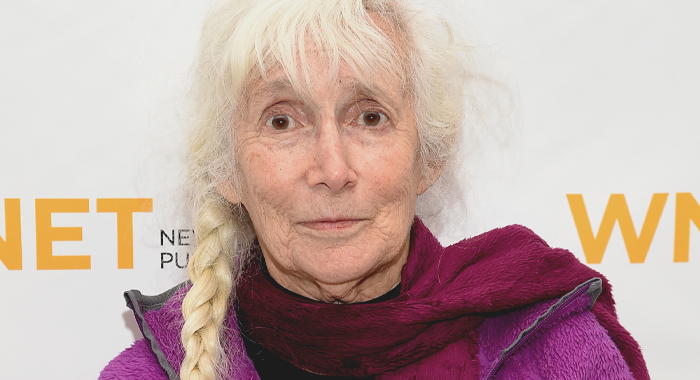
(Photo by Dimitrios Kambouris/Getty Images)
Born in 1939 in Milan, Italy to a family that had fled Nazi Germany, Renata Adler grew up in Danbury, Connecticut. An avid scholar, she studied under José Ferrater Mora as an undergrad at Bryn Mawr College, as well as with Jean Wahl and Claude Lévi-Strauss at the Sorbonne and I. A. Richards and Roman Jakobson at Harvard University, eventually earning a J.D. from Yale Law School in 1979. As a journalist, Adler has worked at The New Yorker, Harper’s Bazaar, and McCall’s Magazine, among other outlets. She has traveled to various conflict zones, covering the Vietnam War, the Six-Day War, and Nigerian Civil War. Along with her reporting, Adler has written fiction and non-fiction books and has been awarded numerous literary grants and prizes, including the PEN/Hemingway Award, the O. Henry Prize, and a Guggenheim Fellowship.
Between 1968 and 1969, Adler worked as the chief film critic for the New York Times, replacing Bosley Crowther. Her film criticism, which Melissa Anderson notes was often filled with “fatigue and exasperation,” spanned the gamut, reviewing everything from Melvin Van Peebles’ indie classic Story of a Three-Day Pass to William Wyler’s penultimate film Funny Girl to the original Planet of the Apes.
“When [Barbra Streisand] is singing — in a marvelous scene on roller skates — when she throws a line away, or shrugs, or looks funny or sad, she has a power, gentleness and intensity that rather knocks all the props and sets and camera angles on their ear.” – New York Times, Sept. 20, 1968
Charlie Jane Anders

(Photo by Mike Coppola/Getty Images)
After studying English and Asian Literature at Cambridge, studying abroad in China, and living in Hong Kong for a spell, Connecticut-born writer Charlie Jane Anders moved to San Francisco where she began writing short stories in various genres. She won a Hugo award for her 2011 novelette ‘Six Months Three Days’ and her debut novel Choir Boy (2005) won a Lambda Literary Award. In 2002 she co-founded Other magazine with Annalee Newitz and was a co-founding editor of io9. Her 2016 novel All the Birds in the Sky was hailed as an “instant sci-fi classic” by the L.A. Times. In 2022, Shela Sexton aka Escapade, a trans mutant superhero co-created by Anders, debuted in Marvel’s Voices: Pride #1.
Before focusing solely on fiction writing, Anders wrote film reviews of mostly genre fare like Maleficent, Tron: Legacy, and Cloud Atlas for both i09 and Wired. In her review of the latter she wrote that, “With any film, there are two versions: the version you watch at the time, and the version that reconstitutes itself in your mind the next day when you’re in the shower.”
“Guardians of the Galaxy isn’t just one of the year’s best movies. It’s also a really interesting experiment with form – it blends hilarious comedy, utterly sincere classic-rock corniness, and massive hold-onto-yourself cosmic adventure.” – io9.com, Aug. 1, 2014
Joan Didion
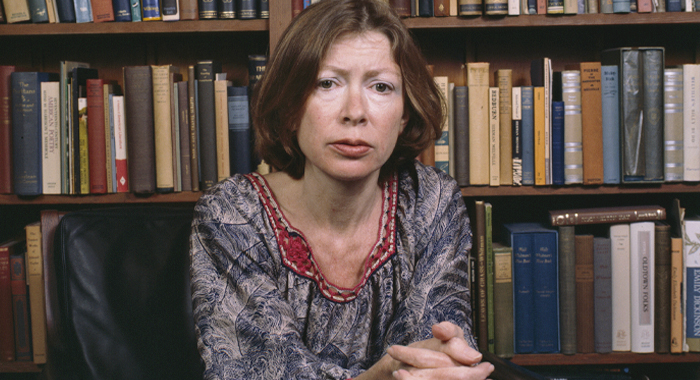
(Photo by Janet Fries/Getty Images)
New Journalism pioneer Joan Didion, herself born from a line of literal pioneers in Sacramento, California in 1934, graduated from the University of California, Berkeley in 1956. An essay penned during her senior year at Cal for a contest sponsored by Vogue landed her a research assistant position at the venerated magazine. During her decades-long career, Didion wrote countless novels, nonfiction books, and groundbreaking reported articles, splitting her time between New York City and Los Angeles with her husband and fellow writer John Gregory Dunne. The two also collaborated on several screenplays, including an adaptation of her novel Play It As It Lays.
While still at Vogue, Didion also wrote a film review column, opening one by writing, “Let me lay it on the line: I like movies, and approach them with a tolerance that will possibly strike you as simple-minded. To engage my glazed attention a movie need be no classic of its kind, need be neither L’Avventura nor Red River, neither Casablanca nor Citizen Kane; I only ask that it have its moments.”
“Since the plot does not bear close tracking, let me note simply that Cary Grant still looks imperishable, Audrey Hepburn still looks like a Givenchy foundling, and the entire affair is carried off as a mild joke upon itself.” – Vogue, Jan. 1, 1964
Gillian Flynn
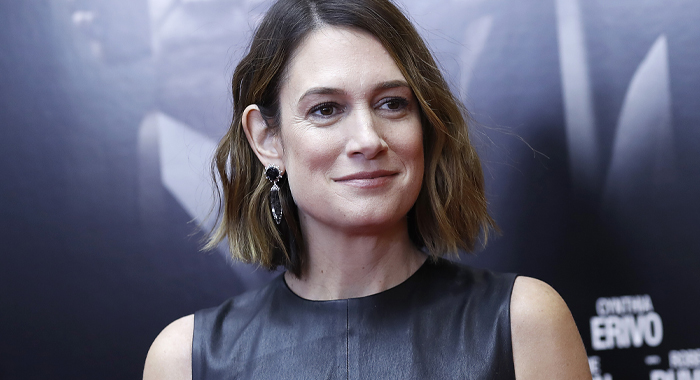
(Photo by John Lamparski/Getty Images)
Born in Kansas City, Missouri to parents who were both professors, writer Gillian Flynn studied English and journalism at University of Kansas before receiving a Master of Journalism from Northwestern University. Flynn worked as a freelance writer before being hired by Entertainment Weekly as a feature writer in 1998. Before she was laid off in 2008, Flynn worked at the magazine as a television critic. She also occasionally wrote about film, penning reviews of television films 24: Redemption and High School Musical 2.
Known for writing complex, often somewhat villainous female characters, Flynn attributes her skill as a writer to her time working as a journalist, telling the Guardian that it “taught me that there’s no muse that’s going to come down and bestow upon you the mood to write. You just have to do it.” She has received numerous accolades for writing the film and television adaptations of her own novels Gone Girl and Sharp Objects. She also co-wrote the film Widows with Steve McQueen and created the show Utopia. She is currently working on her fourth novel.
“This smart series may revive TV’s interest in workplace sitcoms of the NewsRadio stripe – comedies that functioned almost as reality shows: See how smart people betray, bond, and go mad when trapped in petty bureaucracies.” – Entertainment Weekly, March 15, 2005
Penelope Gilliatt
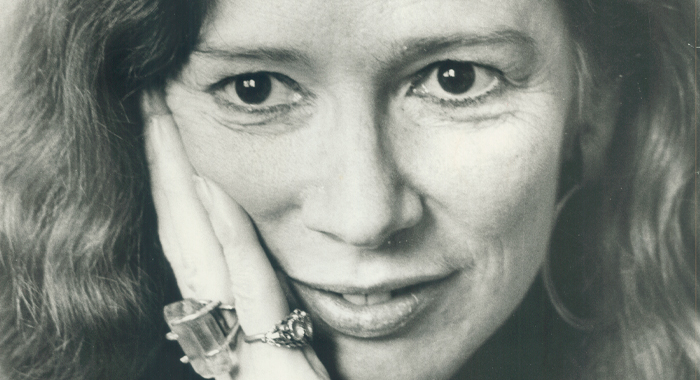
(Photo by Doug Griffin/Getty Images)
Born in London in 1932, British writer Penelope Gilliatt briefly attended Queen’s College, London and Bennington College in Vermont. Noted for her wry yet sensitive examinations of the complexities of modern life, Gilliatt won a fiction writing award from British Vogue and later became a features editor for the magazine. After finishing her novel A Statement of Change, she was approached by John Schlesinger to collaborate on a screenplay based on his own experiences as a gay Jewish man growing up in England. For her work on the film, 1971’s Sunday, Bloody Sunday, she was nominated for the Best Original Screenplay Oscar.
Between 1961 and 1967, though, she also worked as a film and theater critic for London’s The Observer, where she wrote reviews of Satyajit Ray’s Devi and Richard Lester’s A Hard Day’s Night. By 1967, she began a 12-year stint writing a column for The New Yorker. Writing about Gilliatt’s work in the Columbia Journalism Review, Bethlehem Shoals states that, in her column, Gilliatt “penned a steady stream of keenly drawn profiles and reviews that blurred the line between the two, often abstracting the form altogether.”
“George Lucas, who made American Graffiti, has put together a sci-fi film that draws on any number of associations. Star Wars is both amazing and familiar.” – The New Yorker, June 5, 1977
Fannie Hurst
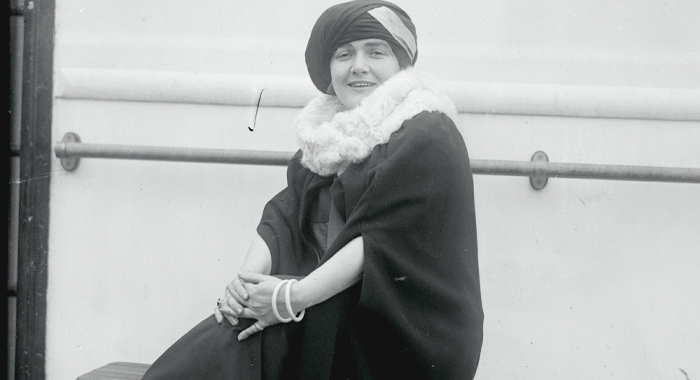
(Photo by Bettmann/Getty Images)
American novelist and short-story writer Fannie Hurst, born in 1889 in Hamilton, Ohio, was one of the highest-paid American writers during the 1920s and one of the most widely read authors of the whole 20th century. Known as Queen of the Sob Sisters, her early short stories were published in journals, newspapers, and magazines like The Saturday Evening Post and Cosmopolitan. Almost immediately, many of her works were made into films, with both Humoresque and Imitation of Life adapted twice in different decades. The latter was inspired by Hurst’s longtime friendship with author Zora Neale Hurston.
Although she once wrote, “Words describe aspects and nuances of the human mind that are too minute for the broader medium of movies,” by the 1940s, Hurst began writing film criticism for Modern Screen, reviewing everything from Billy Wilder’s Best Picture winner The Lost Weekend to the Gershwin biopic Rhapsody in Blue to Alfred Hitchcock’s psychological thriller Spellbound.
“In the book, words slip into crevices too small for the camera to enter. Words describe aspects and nuances of the human mind that are too minute for the broader medium of movies. Nevertheless the result is a good brave try, surprisingly achieved.” – Modern Screen, November 1945
Gerri Major
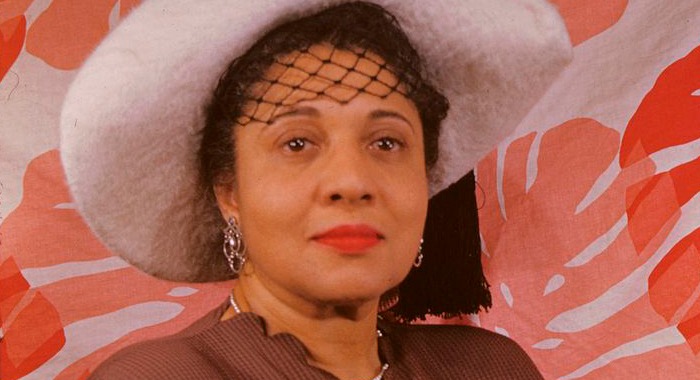
(Photo by Carl Van Vechten via Town & Country Magazine)
Gerri Major, born Geraldyn Hodges in Chicago in 1894, was once one of the most well-known Black women in the United States. Relocating to Harlem, Major’s first editorial job was New York social editor of the Pittsburgh Courier, but she held many vocations over the decades, including as a publicist, journalist, editor, radio newscaster, author, public health official, and community leader. In 1976 she co-authored the book Black Society, tracing the histories of many prominent African American families.
Five decades earlier, she published an article in the avant garde art publication Close-Up entitled “The Negro Actor and the American Movies.” In the piece, she wrote “The Negro actor and the part he has played in the development of the American movie is one of the most interesting phases of what is now one of America’s greatest industries.” Working as an associate editor of Jet Magazine, Major reviewed films like Federico Fellini’s La Dolce Vita and Elmer Gantry starring Burt Lancaster.
“Fellini is noted for his mastery of contrasts, his uncanny ability to find off-beat and bizarre occurrences which expose both the little and gross facets of life… Its impact is violent. Its irony is grim. Its wit is sardonic. Its pathos is awesome.” – Jet Magazine, June 22, 1961
Achy Obejas
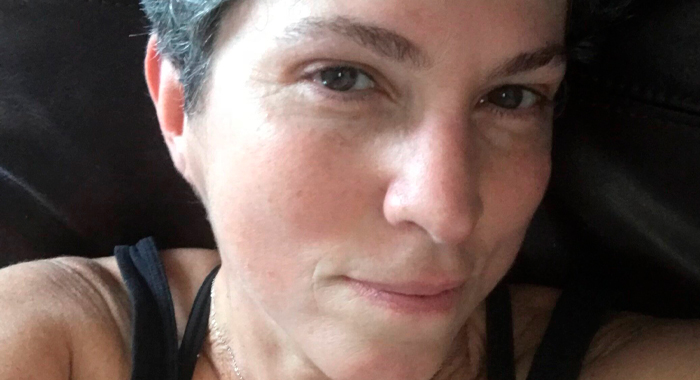
(Photo by https://www.achyobejas.com)
Born in Havana, Cuba in 1956, writer and translator Achy Obejas emigrated to the United States as a child, settling in Michigan City, Indiana. She attended Indiana University and received an M.F.A from Warren Wilson College in 1993. She has lectured and taught writing at many universities, including the University of Chicago, the University of Hawaiʻi, DePaul University, and Mills College, and her journalism work has appeared in Chicago Tribune, The Advocate, Out, Vanity Fair, Playboy, Ms., The Village Voice, The Washington Post, and The New York Times. Her poetry collection Boomerang/Bumerán, written mostly in gender-free English and Spanish, addresses common themes in her work like immigration, displacement, love, and activism.
Writing for the Chicago Tribune, Obejas reviewed indie classics like Zeinabu Irene Davis’ Compensation and Cheryl Dunye’s The Watermelon Woman. She also occasionally wrote a dinner-and-a-movie-themed column, describing the atmosphere at revered Chicago film institutions like the Davis Theater and the Doc Films at the University of Chicago.
“The handsome black and white film, which plays like a silent movie with its ambient soundtrack and ornate title cards, creates a complex and vivid, vintage Chicago using historical and family photos.” – Chicago Tribune, March 5, 1999
Zadie Smith
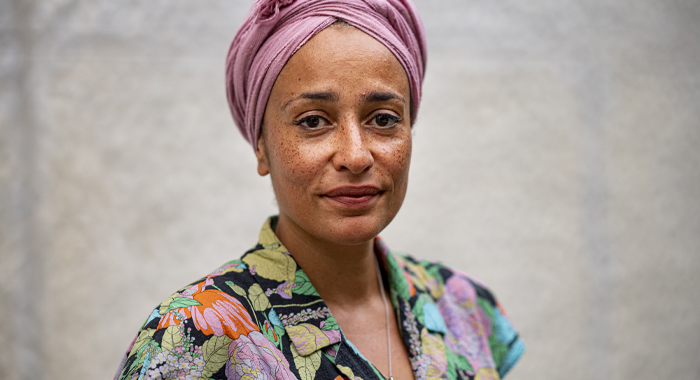
(Photo by picture alliance/Getty Images)
Born Sadie Smith in London in 1974, the soon-to-be acclaimed writer changed her name to Zadie when she was 14 years old. She began publishing short stories while attending King’s College, Cambridge. At 22 she published her debut novel White Teeth, which explores the complex relationship between Britain and immigrants from the British Commonwealth. A bestseller, it received numerous accolades, and was listed by Time Magazine as one of the 100 Best English-Language Novels from 1923 to 2005. Her third novel On Beauty was shortlisted for the Man Booker Prize. Her short stories and essays have appeared in countless publications, including Granta, The New Yorker, Harper’s Magazine, and the New York Review of Books, and in 2012, she joined the Creative Writing faculty of New York University as a tenured professor.
In the mid-2000s, she wrote film reviews for The Daily Telegraph in the UK, reviewing Oscar-contenders like Munich and Good Night, and Good Luck, as well as lighter fare like Shopgirl and Date Movie. Her column in the New York Review of Books often includes critiques of films like Anomalisa and Tár. A stand-out essay is her lengthy analysis of David Fincher’s The Social Network; she was a Fellow at Harvard when Zuck was hatching The Facebook in his dorm.
“Date Movie is the worst movie I have ever seen. I really mean that.” – Daily Telegraph (UK), Feb. 26, 2006
Lindy West
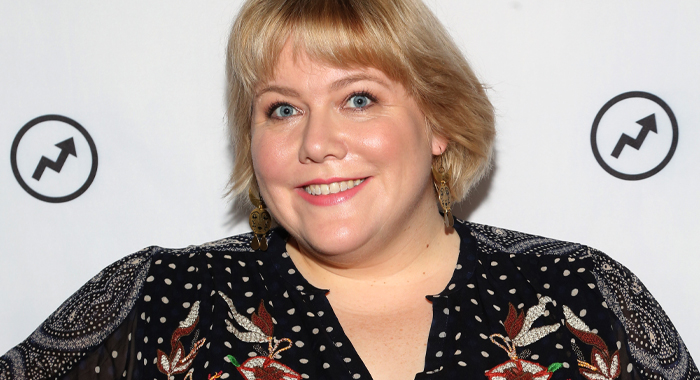
(Photo by Manny Carabel/Getty Images)
Born in Seattle in 1982, writer, comedian, and activist Lindy West has written widely about feminism, popular culture, and the fat acceptance movement. After Occidental College, she worked as the film editor The Stranger, an alt weekly newspaper. As film editor she reviewed everything from The Holiday to Salt to Crazy, Stupid, Love. After moving to Los Angeles in 2012, West became a staff writer for Jezebel, and also had her work featured in publications like GQ, Vulture, and The Guardian. In 2015, West co-founded the Twitter campaign Shout Your Abortion to help destigmatize abortion. Her book of essays, Shrill: Notes from a Loud Woman, was published in 2016, and a series adaptation starring Aidy Bryant aired on Hulu for three seasons.
She returned to writing about film with her third book of essays, Shit, Actually: The Definitive, 100% Objective Guide to Modern Cinema. Described as both a love letter and a break-up note, West’s essays re-examine beloved movies from the past 40 years like The Lion King and Twilight with the same “brutal honesty and giddy irreverence” she brought to her reviews when she wrote for The Stranger, where she has said she “learned a lot about writing and criticism and about what kind of writer I wanted to be, through trial and error.”
“Step Up 3D doesn’t have to be anything more than a series of completely magnificent dance sequences (all that tasty, candied melodrama is just a binding agent). And the dancing does not disappoint. It’s virtuosic and exciting and borderline magical.” – The Stranger (Seattle, WA)
Archival curation for this feature was led by Tim Ryan. Additional review curation by Dom.





